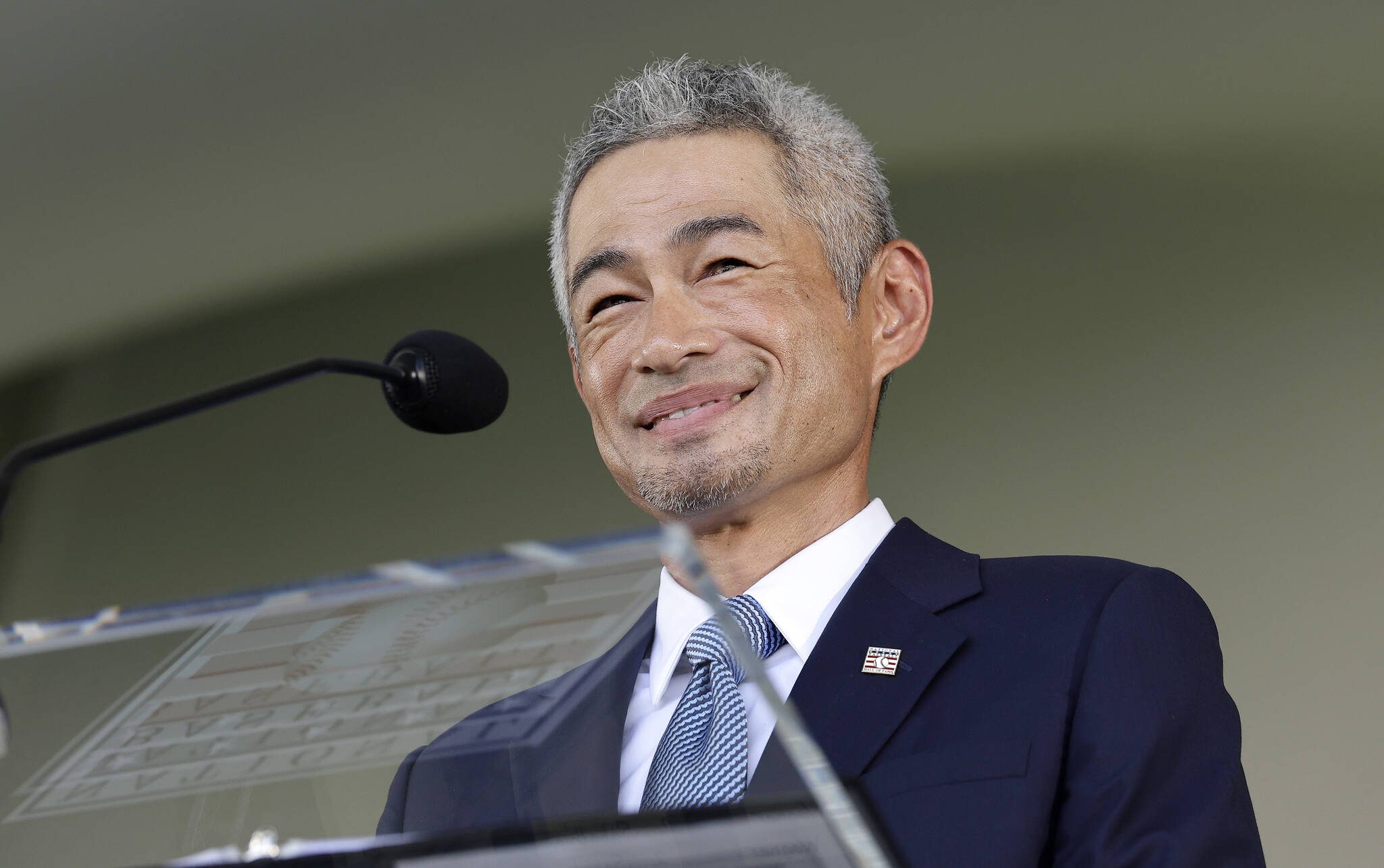Ichiro Suzuki could have been immortalized as a first-ballot Hall of Famer nearly a decade ago. He was last a full-time starter in 2012, at age 38. He logged his 3,000th hit in 2016, when he was 42. Still, he made us wait three more years to celebrate his retirement.
It wasn’t annoying that he lingered for so long. It was Ichiro at his purest. The one-of-a-kind right fielder, now the first Japanese player headed to Cooperstown, was an athlete who refused to break routine, even when his starlight dimmed. Once he couldn’t provide thrills with regularity, you would have thought he would lose his joy. But his love for baseball is not conditional. He remained as faithful to the four hours before the first pitch as he did to the three-hour competition. Just thinking about his meticulous stretching regimen makes me feel like the stiffest person on earth.
He often would stretch four times a day. Instead of being consumed with lifting weights, he focused on flexibility. He needed special machines to be sufficiently limber, and when he wasn’t using machines, he could shock you with his range of motion. The man stretched before breakfast. He stretched ahead of the team’s daily session. He stretched again after on-field workouts. Then he ended his night stretching at home or in the hotel.
He became one of the most original superstars in baseball history one fine detail at a time. Ichiro would never be caught unprepared. He also never allowed anything on the periphery to influence the way he played. That made him a frustrating subject to cover. I once waited three days to get a 15-minute interview with him. Upon my request, Ichiro said through his interpreter that he would be happy to talk but he wouldn’t arrange a time.
“You have to get me when there’s an opportunity,” he said. “Be ready.”
The first day, I arrived at 2 p.m., at least an hour before the clubhouse opened for media, and stalked him as much as I could during availability.
“You missed him,” the interpreter said. “Maybe tomorrow.”
The next day, I was even more locked in. No, he couldn’t do it, I was told. I waited until after the game and asked again.
“Tomorrow,” Ichiro said. “After batting practice.”
When he sat down on that third day, it was the best conversation I ever had with Ichiro – probably because it centered on Ken Griffey Jr., his idol who became his teammate in 2009. Ichiro spoke poetically about playing the game with grace and beauty. He talked about figuring out how to translate the way Griffey played Gold Glove defense in center field as a 6-foot-3, 200-pound slugger to fit his style as a 5-foot-11, 175-pound right fielder.
Ichiro, a pioneering Japanese superstar position player in the majors, usually didn’t reveal much. Seventeen years before Shohei Ohtani arrived as a two-way marvel, Ichiro dealt with the pressure of living up to all the speculation that he would arrive and change the way we looked at baseball in America. He came with a large Japanese media following in addition to American reporters who now covered him as the face of the Mariners’ franchise. He didn’t do interviews in English, and other than a few lighthearted queries about his daring fashion sense, he didn’t entertain many questions that lacked substance.
He was a serious baseball talent who kept celebrity at arm’s length. Somehow, it made him more captivating. You could judge only his game and wonder how he could be so consistently diligent about maximizing every hour of his day.
Ichiro never chilled, yet it was so cool to watch him play.
He recorded a record 10 straight seasons with at least 200 hits. In 2004, he broke George Sisler’s 84-year-old record for hits in a season, raising the standard from 257 to 262. He came to Major League Baseball at 27 years old and finished with a remarkable 3,089 hits. Combine that with the 1,278 he had in Japan, and Ichiro stands as the career hits leader in professional baseball with 4,367. That’s 111 more than Pete Rose. You can try to discredit what he accomplished before the majors, but considering that he arrived and immediately won the American League MVP as a rookie, it’s reasonable to suggest Ichiro’s combined hits total should be revered even though you can’t make a perfect comparison to Rose.
Ichiro doesn’t need to be the king. He prefers to stand on his own.
He owns private property in the highest tier of superstars who never cheated their game. That means more than his 10 all-star appearances and 10 Gold Gloves, more than his .311 average and 509 stolen bases. I remember his rocket arm, the turbo button he would hit as he ran from first to third base and the raw power he displayed during batting practice that left many with the hilarious conclusion that the notorious singles hitter could hit a home run whenever he wanted.
Talk to us
> Give us your news tips.
> Send us a letter to the editor.
> More Herald contact information.

























